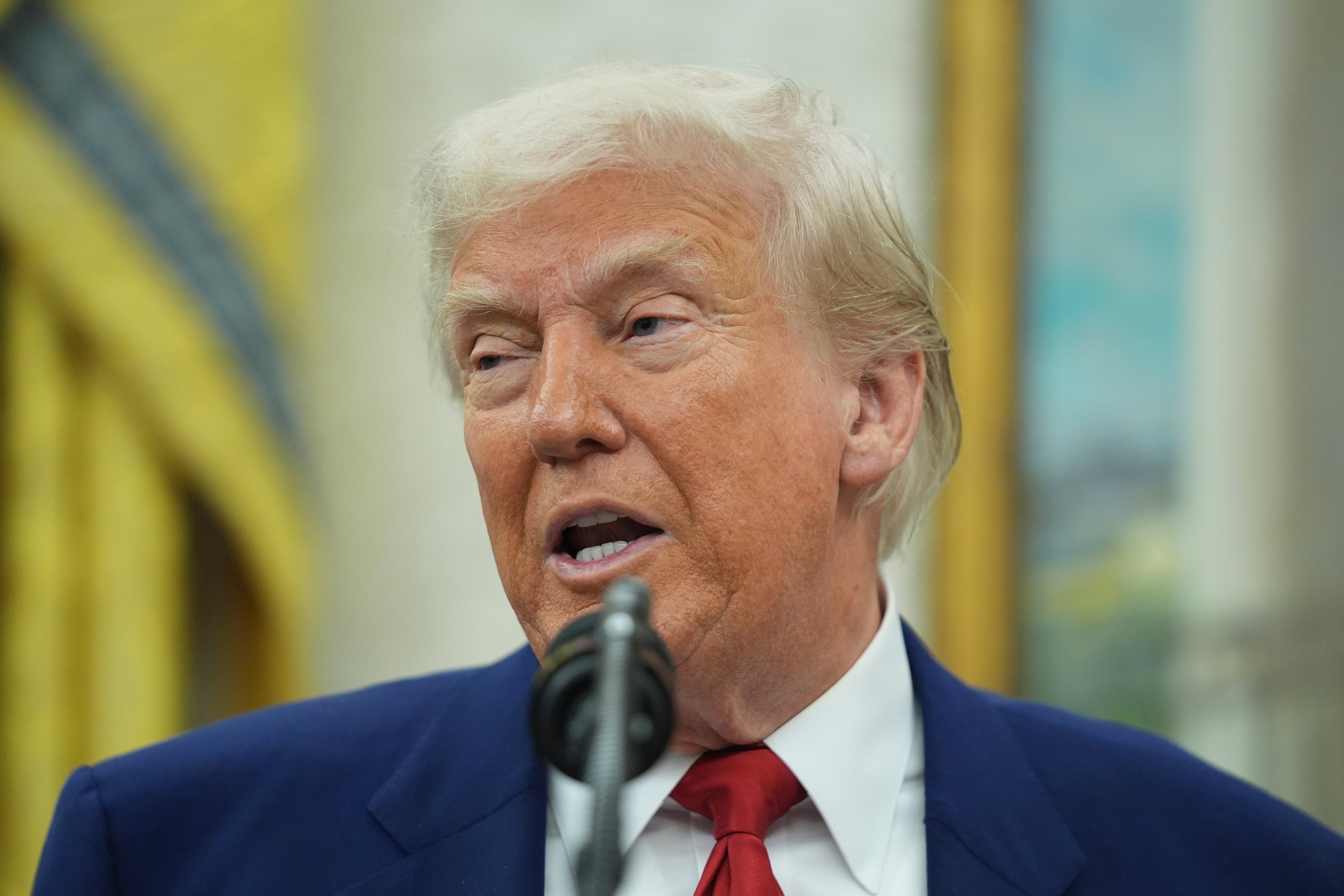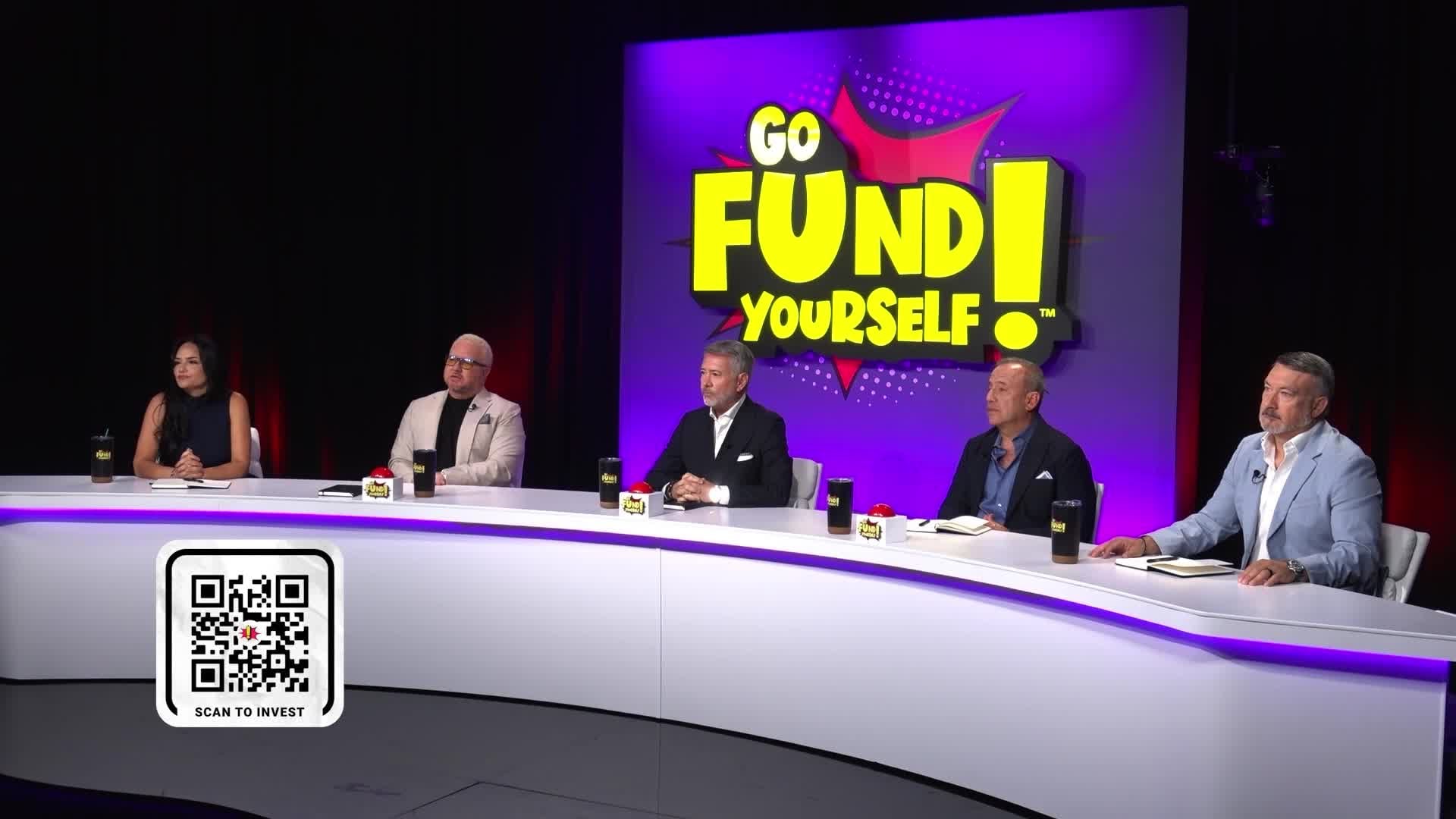WASHINGTON (AP) — President Donald Trump wants the world to know he’s no “chicken” just because he’s repeatedly backed off high tariff threats.
The U.S. Republican president’s tendency to levy extremely high import taxes and then retreat has created what’s known as the “TACO” trade, an acronym coined by The Financial Times’ Robert Armstrong that stands for “Trump Always Chickens Out.” Markets generally sell off when Trump makes his tariff threats and then recover after he backs down.
Trump was visibly offended when asked about the phrase Wednesday and rejected the idea that he’s “chickening out,” saying that the reporter’s inquiry was “nasty.”
“You call that chickening out?” Trump said. “It’s called negotiation,” adding that he sets a “ridiculous high number and I go down a little bit, you know, a little bit” until the figure is more reasonable.
Trump defended his approach of jacking up tariff rates to 145% on Chinese goods, only to pull back to 30% for 90 days of negotiations. He similarly last week threatened to impose a 50% tax on goods from the European Union starting in June, only to delay the tariff hike until July 9 so that negotiations can occur while the baseline 10% tariff continues to be charged. Similar dramas have played out over autos, electronics and the universal tariffs that Trump announced on April 2 that were based in part on individual trade deficits with other countries.
In each case, Trump generally took the stock market on a roller coaster. Investors sold-off when the tariff threats were announced as they implied slower economic growth and higher prices, which would hurt companies’ profits. Stocks then rebounded after Trump stepped back.
As of Wednesday afternoon, the S&P 500 stock index was up slightly so far this year. But the index was down as much as 15% on the year on April 8, a reflection of the volatility that Trump’s changing policies have created.
He said that approach has led to $14 trillion in new investment in the U.S., a figure that appears to be artificially high and has not been fully verified by economic data.
“Don’t ever say what you said,” Trump said with regard to the notion of him chickening out. “To me, that’s the nastiest question.”
Trump said that EU officials would not be negotiating if not for his 50% tariff, saying he usually has the opposite problem of being “too tough.”
The Federal Reserve cut its key interest rate Wednesday for a second time this year as it seeks to shore up economic growth and hiring even as inflation stays elevated. The move comes amid a fraught time for the central bank, with hiring sluggish and yet inflation stuck above the Fed’s 2% target. Compounding its challenges, the central bank is navigating without much of the economic data it typically relies on from the government. The Fed has signaled it may reduce its key rate again in December but the data drought raises the uncertainty around its next moves. Fed Chair Jerome Powell told reporters that there were “strongly differing views” at the central bank's policy meeting about to proceed going forward.
U.S. and Chinese officials say a trade deal between the world’s two largest economies is drawing closer. The sides have reached an initial consensus for President Donald Trump and Chinese leader Xi Jinping to aim to finalize during their high-stakes meeting Thursday in South Korea. Any agreement would be a relief to international markets. Trump's treasury secretary says discussions with China yielded preliminary agreements to stop the precursor chemicals for fentanyl from coming into the United States. Scott Bessent also says Beijing would make “substantial” purchases of soybean and other agricultural products while putting off export controls on rare earth elements needed for advanced technologies.
A new poll finds most U.S. adults are worried about health care becoming more expensive.
The White House budget office says mass firings of federal workers have started in an attempt to exert more pressure on Democratic lawmakers as the government shutdown continues.
President Donald Trump says “there seems to be no reason” to meet with Chinese leader Xi Jinping as part of an upcoming trip to South Korea after China restricted exports of rare earths needed for American industry. The Republican president suggested Friday he was looking at a “massive increase” of import taxes on Chinese products in response to Xi’s moves. Trump says one of the policies the U.S. is calculating is "a massive increase of Tariffs on Chinese products coming into the United States." A monthslong calm on Wall Street was shattered, with U.S. stocks falling on the news. The Chinese Embassy in Washington hasn't responded to an Associated Press request for comment.
Most members of the Federal Reserve’s interest-rate setting committee supported further reductions to its key interest rate this year, minutes from last month’s meeting showed.









